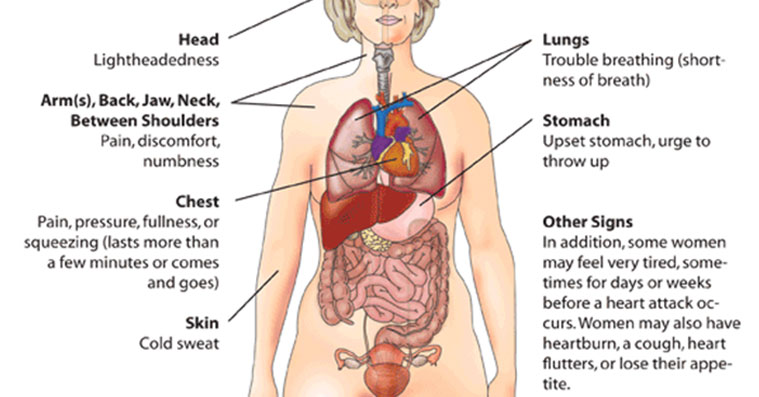According to the Centers for Disease Control and Prevention, approximately 735,000 people in the U.S. have a heart attack each year.
Heart disease is also the leading cause of death for both men and women, beating all forms of cancer combined.
Heart attacks can be a result of many various factors, such as stress, a bad diet, excessive alcohol use, diabetes, and even infections have been implicated, amongst other things.
If you have a family history of heart attacks or believe a friend or yourself is at risk, here’s a few ways to identify a heart attack before it happens.
Although heart attacks can occur in one’s 40’s or 50’s, once you reach your 60’s you should be aware of the following:
Discomfort in the chest
At the first sign of discomfort in your chest, you should go to your trusted health professional right away. The pain will typically come from the center or the left side of your chest and will last for a few minutes. It may feel like squeezing, heartburn or indigestion.
Loss or shortness of breath
While loss or shortness of breath is typically a sign of being out of shape, it is also a early warning that you may be having a heart attack. Even the most in shape people are prone to heart attacks so don’t ignore this feeling. Shortness of breath can happen before or during discomfort in the chest.
Light-headedness or nausea
Poor circulation in the body causes your brain to receive less blood, which can make you feel lightheaded or nauseous. Cold sweats is another symptom that will happen alongside the light-headedness and nausea. Even though it may feel like you have a cold, it is important that you don’t ignore these symptoms.
Upper body pain
If you feel pain in your upper body, such as your shoulders, back, neck, jaw, or upper part of the stomach then you want to be careful. This could be an early sign of a heart attack.
Quick Action
It is imperative that you take immediate action, if someone you know is (or if you are) experiencing these symptoms.
If you are in an over 60 age bracket and you have or are currently experiencing these symptoms, call 9-1-1 immediately even if you are not sure. Emergency medical personnel can assess your situation and provide advice to stop the potential heart attack. Study up on natural ways to stop a heart attack include high doses of cayenne pepper in capsules as recommended by Dr. Schultz and Dr. Christopher.
Sources:


